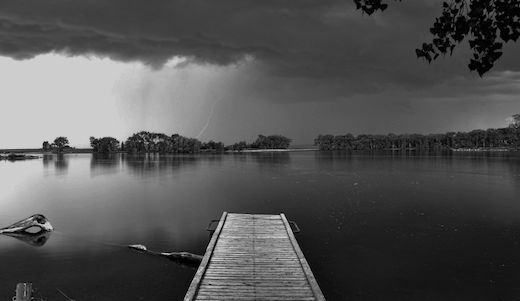The use of smartphones has become an essential part of everyday life. Checking work emails, surfing the web, using the newest apps to make your life simpler, or doing the oh so popular texting others to stay connected— these are just a few amazing functions of the smartphone. Parents tend to rely on their smartphones to communicate with their children, synchronize schedules, and even keep tabs on daily assignments and grades.
The Growing Parent: Trauma in the Media (Part 7)
There are a number of different things we parents can do to help minimize our children’s fears, as I’ve noted in the previous posts, but more than most anything else our children need a sense of security. For a child to know their parents are there to take care of him has the propensity to create a stable platform for him to build off of and excel.
Shame or Guilt: The Effects
In the first part of this series, we talked about distinguishing the differences between true guilt, false guilt, and shame. Now, let’s look at the effects of shame and guilt and how to overcome them.
Shame or Guilt: What Is The Difference?
Many people say they feel guilty about various things they have said or done in the past. They may even feel guilty when saying ‘no’ or standing up for themselves. There are misconceptions between what is actual guilt and what is false guilt. Furthermore, what someone may actually be feeling is actually shame.
The Growing Parent: Trauma in the Media (Part 6)
“With all the violence and natural disasters in the media today my children are constantly afraid. What can I do to help them not be so scared all the time?”
Understanding Your Teen: Bullying
Bullying looks different now than it did even 20 years ago. As a parent of a pre-teen or teen, it’s important to know these statistics & warning signs.
People Pleasing
People pleasing can become a way of life for many people. They live their lives with the goal of pleasing others.
Weathering an Emotional Storm: Healing & Moving Forward (Part 3)
During the period immediately following the crisis, your intense feelings of fear, panic, and anger begin to de-escalate. It may be difficult to resume your previous level of emotional or physical functioning due to feelings of uncertainty. You’ll start to notice certain words or situations are now triggers, reminding you of the traumatic event.
Weathering an Emotional Storm: How to Remain Calm (Part 2)
As an “emotional storm” is approaching, negative thoughts may begin to take hold of you and cause intense feelings of fear, anger, panic or loss of control.
You may think things like:
“I’m in danger.”
“I’m trapped.”
“I’m all alone.”
Weathering An Emotional Storm: You Have Choices (Part 1)
I use the term “emotional storm” metaphorically to represent times of emotional crisis in your life where you need to seek shelter in safety, connection with others, love and calmness, not just a physical shelter. An “emotional storm” can arise suddenly and consist of intense fear, chaos, anger, and a sense of unknowing.


